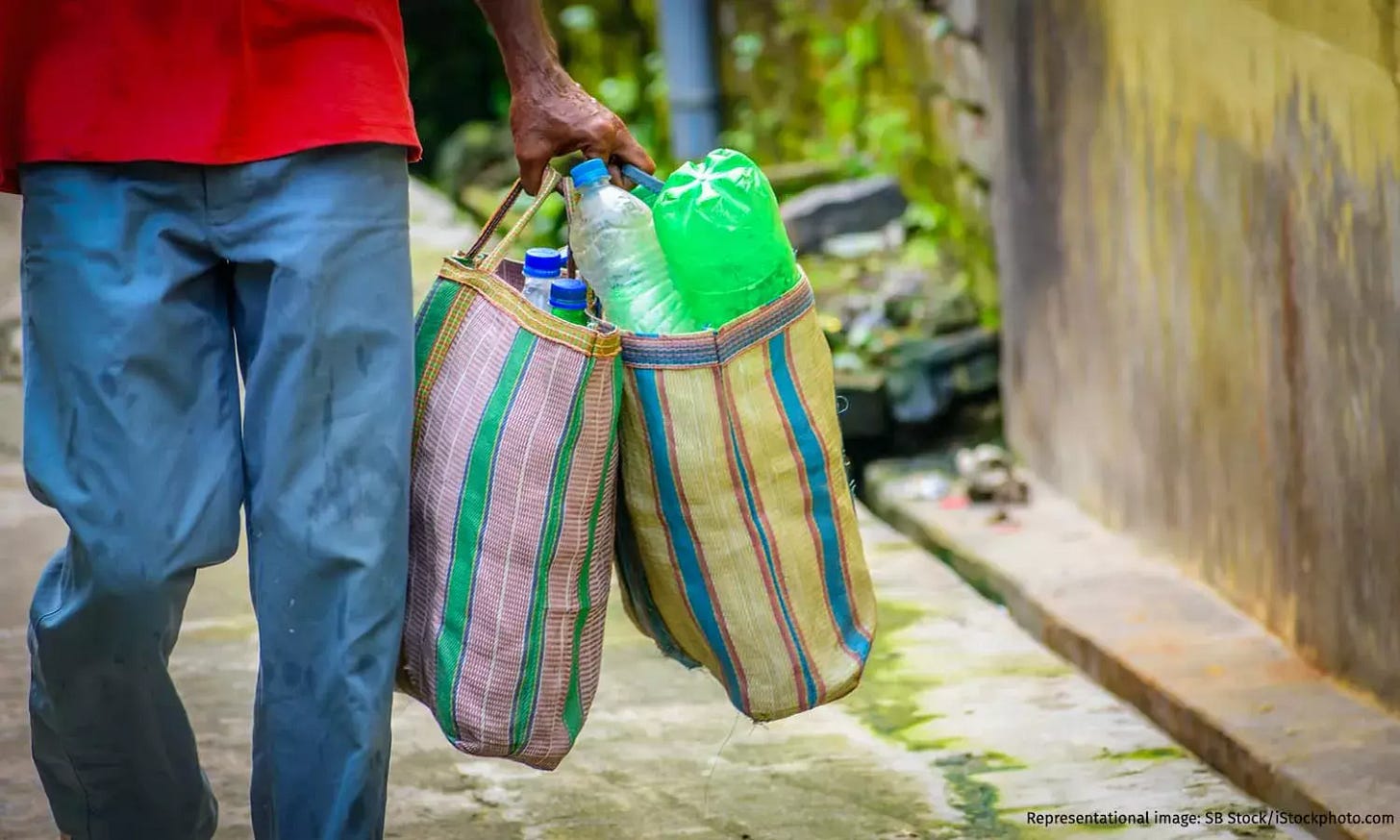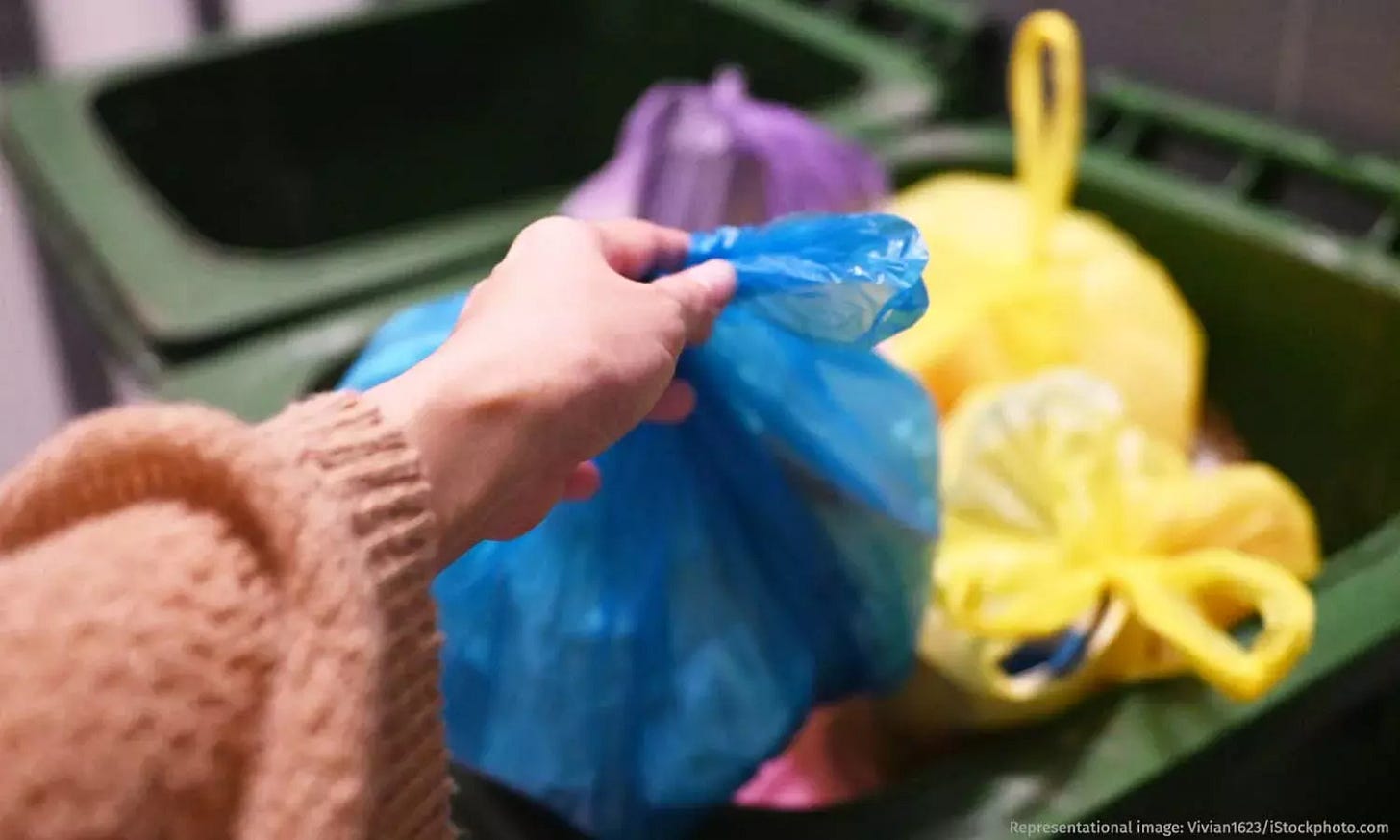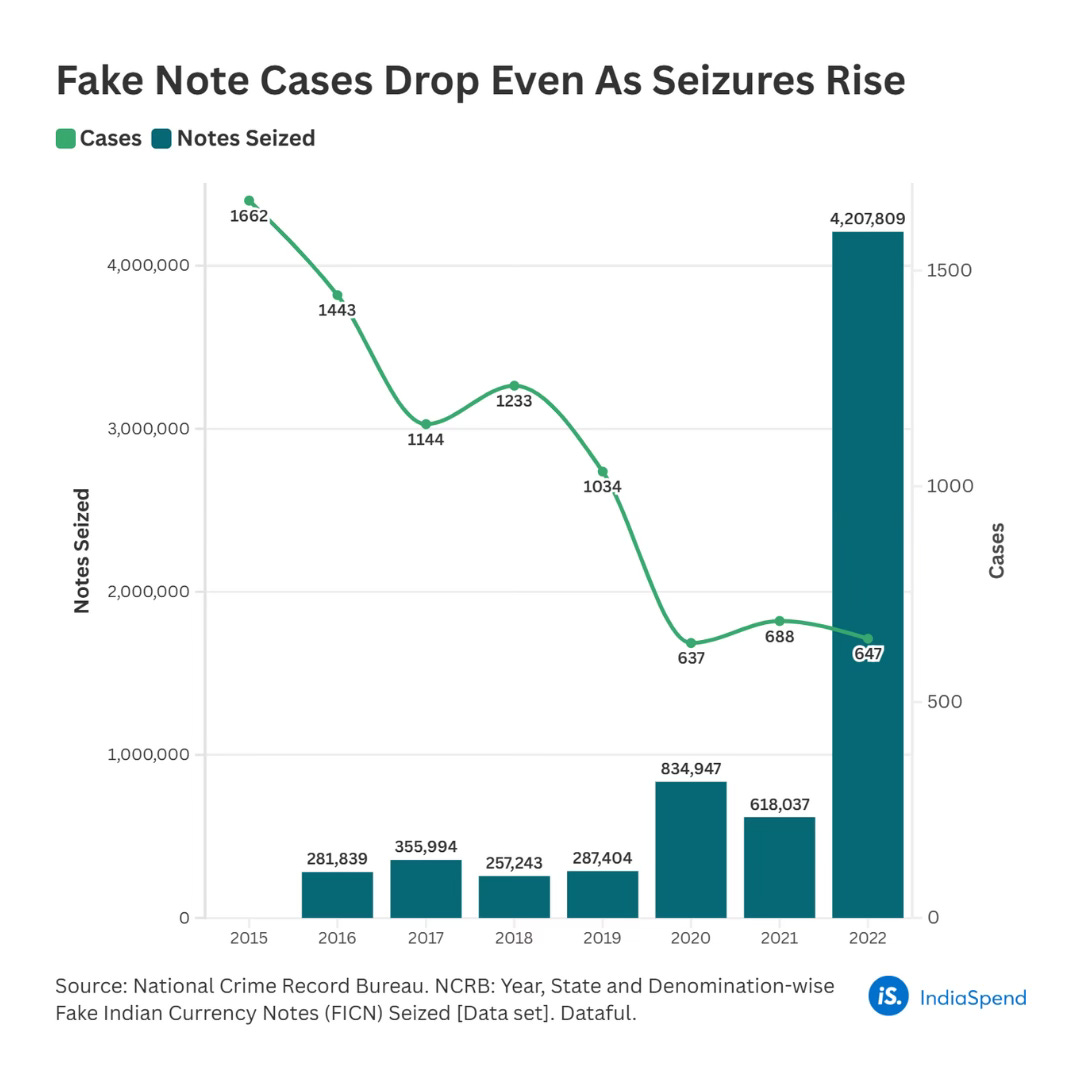Laws, Loopholes & The Lives They Impact
This week, plastic waste laws diluted, the recycling argument, growing counterfeit currency hauls, and the untold struggles of infertility
Dear reader
India has nearly 5,000 lawmakers including about 800 members of parliament, and more than 4,100 members of legislative assemblies at the state level, not counting state and city/district councils. Technically, new laws are discussed and debated in select committees and in open proceedings. But a bulk of the drafting, amendments and implementation of these laws is done behind the scenes. Our stories this week look at an example of how this happens, and it’s not great news.
How plastics industry helped shape the very rules meant to regulate it
India is among the highest plastic polluters in the world, and successive legislations appear to regulate this. But our investigation reveals that the industry and the chemicals ministry have, over the years, influenced these regulations.
For instance, when the government sought to enforce the ‘Plastic Manufacture and Usage Rules’, the industry pushed back objecting to the name itself, which they said was unfairly targeting a ‘wonder material’. By 2011, the word ‘manufacture’ was dropped from the name, putting the onus of plastic waste management on local bodies and users.
We studied more than 5,600 pages containing minutes of meetings, committee notes, letters and other documents accessed under the Right to Information Act and found that stringent rules have been repeatedly diluted, overturned or deadlines extended, Sukriti Vats reports.
The recycling myth and other unproven tech
India claims to be recycling 60% of its plastic waste. This number has been touted for decades, but independent studies suggest otherwise. Looking at these documents and other studies, we found the source--a decades-old study limited to waste collection in Delhi’s airports and railway stations. It found its way into ministry documents and presentations, used even as recently as 2023.
Studies also say that India underestimates its waste generation by a factor of three, suggesting a massive problem that is not even quantified accurately. Over the years, industry bodies and ministries have turned to technology such as waste-to-energy and ‘biodegradable’ plastics, which are far from being used at scale, notwithstanding the emissions risks that they entail. Sukriti writes, in the second of our two-part investigation.
Shifting fake currency patterns
Years ago, if you handed a 500- or 1,000-rupee note to a shopkeeper, chances are they would hold it up against light, looking for its security features to ensure it’s not a fake note. You don’t see that as often anymore, but fake notes are still detected. And the patterns have changed.
In 2022, banks detected roughly two fake notes for every million notes in circulation. In 2016, before demonetisation, seven notes per million were detected as fake in banks. But that doesn’t mean India is seeing fewer fake notes.
In five years to 2021, fake currency notes seized across India more than doubled, even as cases filed for such seizures fell 50%, suggesting an increase in volume per seizure. In 2022, Indian law enforcement agencies seized Rs 382 crore in 4.2 million fake currency notes. Compared to the previous year, this was seven times in volume and 19 times in value. Vijay Jadhav explains the numbers in five charts.
The emotional & social battle with infertility
Rising infertility in India is both a medical and social challenge, as seen in the stories of women like Zeba—who spent up to Rs 10 lakh on IVF after repeated pregnancy losses—and others battling PCOS and stigma. Infertility affects about 1 in 6 people worldwide, with India’s rates rising alongside a sharp drop in fertility.
While Assisted Reproductive Technology (ART) such as IVF is expanding rapidly, high costs and low awareness of conditions like PCOS and endometriosis limit access. Experts stress that beyond treatment, empathy, open dialogue, and social support are vital to address the emotional and cultural toll on women. Huneza Khan reports for IndiaSpend Hindi.
That’s it from us this week. Have a good weekend.





